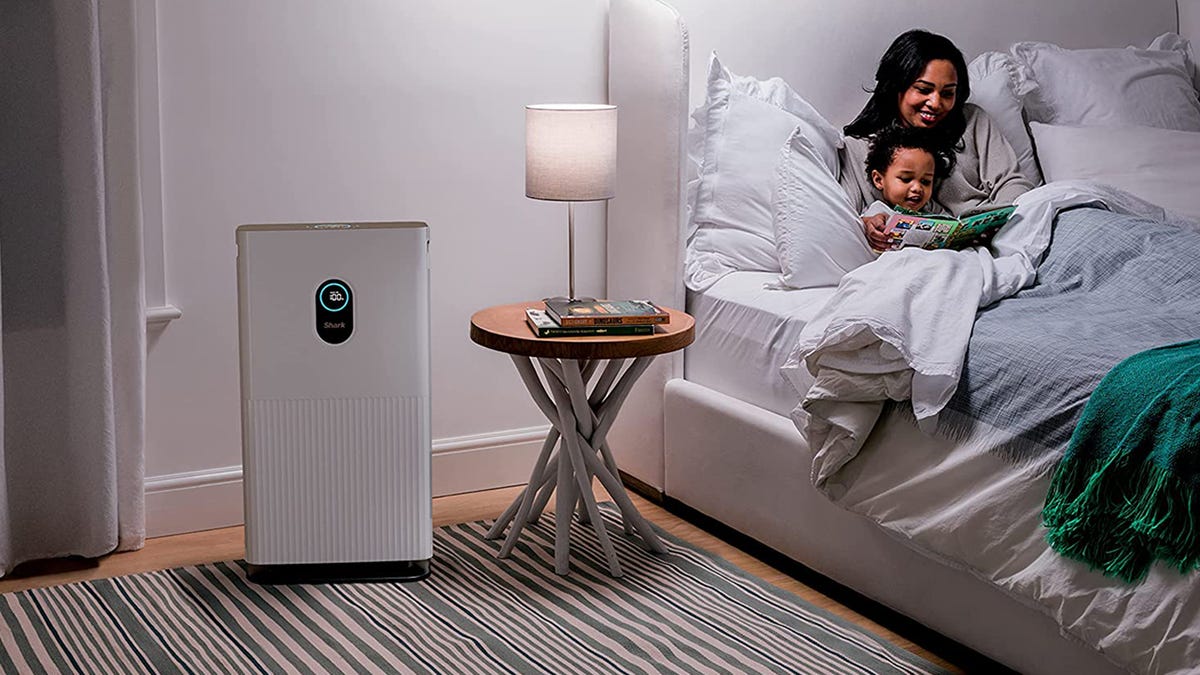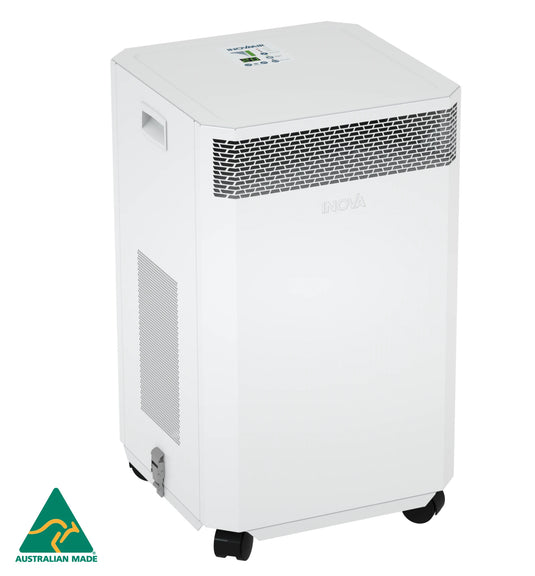Featured
Table of Contents
- – Recognizing Allergies and Triggers
- – Can Air Purifiers Help with Allergies?
- – The Science Behind Air Purifiers and Allergies
- – Are Air Purifiers Right for You? Factors to T...
- – Maximizing Air Purifiers for Allergies
- – Beyond Air Purifiers: A Multi-Pronged Approach...
- – Living a Breath Easier Life with Allergies

For allergic reaction patients, spring blossoms and fluffy pets can bring more sniffles and sneezes than delight. Indoor irritants like dust mites, family pet dander, and plant pollen can ruin your respiratory system, leaving you really feeling unpleasant. Air purifiers are frequently proclaimed as a remedy, encouraging cleaner air and alleviation from allergic reaction signs. Are air cleansers truly worth the financial investment for allergy victims? This detailed guide explores the science behind air purifiers, their efficiency for allergies, and the variables to take into consideration when making a choice.
Recognizing Allergies and Triggers
To comprehend the duty of air cleansers, allow's initial delve into allergies and their triggers:
- The Sensitive Response: Allergies occur when your body immune system overreacts to a harmless compound, like plant pollen or allergen. This response causes the launch of histamines, creating allergy signs like sneezing, coughing, itchy eyes, and a drippy nose.
- Usual Allergens: Indoor allergens include allergen, pet dander, mold spores, pollen that drifts inside your home, and even roach allergens. These airborne bits can irritate your respiratory tracts and activate allergy signs.
Can Air Purifiers Help with Allergies?
Air cleansers function by attracting air, removing toxins, and releasing cleaner air back right into the room. Right here's how they can possibly profit allergy patients:
- Trapping Allergens: HEPA (High-Efficiency Particulate Air) filters, a common type utilized in air purifiers, are very efficient at capturing airborne allergens like dirt mites, animal dander, and plant pollen. By getting rid of these triggers from the air you take a breath, air cleansers can aid decrease allergy symptoms.
- Improved Air Top Quality: Air purifiers can additionally eliminate various other toxic irritants from the air, such as smoke, dirt, and unstable natural substances (VOCs) This total renovation in air quality can be beneficial for allergic reaction victims that are delicate to these added triggers.
The Science Behind Air Purifiers and Allergies
Studies have actually shown that air cleansers can be handy in decreasing allergic reaction signs and symptoms. Below's a take a look at some crucial research study findings:
- A 2019 review published in the journal "Present Allergic reaction and Asthma Reports" concluded that air cleansers with HEPA filters can be efficient in minimizing allergic reaction signs and improving high quality of life for people with allergic rhinitis (hay fever)
- A 2018 study published in the journal "Record of Allergic Reaction, Asthma & Immunology" located that making use of an air purifier with a HEPA filter in the room considerably lowered allergen allergen levels and improved rest top quality in individuals with asthma.
However, it's important to note that research additionally suggests some constraints:
- Air Purifier Insurance Coverage: Air purifiers are most efficient in the space where they are placed. Their influence on irritants in various other components of your home could be marginal.
- Seriousness of Allergies: While air purifiers can help, they could not be a full remedy for extreme allergies. Medications and various other allergic reaction administration methods might still be needed.
Are Air Purifiers Right for You? Factors to Think About
Here are some key elements to take into consideration when choosing if an air purifier is worth it for your allergic reactions:
- Intensity of Allergies: If your allergic reactions are light and well-controlled with medication, an air purifier could not be required. For those with modest to serious allergic reactions, an air purifier can be a valuable device in taking care of signs.
- Types of Irritants: Think about the main triggers for your allergic reactions. Air cleansers are most effective for airborne irritants like allergen, family pet dander, and pollen. They could not be as practical for allergens like mold that expand on surface areas.
- Lifestyle and Atmosphere: If you have pet dogs, stay in an area with high plant pollen counts, or have worries regarding interior air quality, an air purifier can be helpful.

Maximizing Air Purifiers for Allergies
If you decide to purchase an air purifier for allergic reactions, here are some ideas for optimizing its efficiency:
- Pick a HEPA Filter: Seek an air purifier with a HEPA filter licensed to capture fragments as small as 0.3 microns.
- Right Size for the Area: Guarantee the air purifier has a Clean Air Shipment Price (CADR) that appropriates for the size of the area you plan to utilize it in.
- Placement Matters: Put the air purifier in the area where you spend one of the most time, such as your bedroom.
- Normal Filter Upkeep: Change HEPA filters according to the maker's guidelines to keep optimum performance.
- Integrate with Other Techniques: Air purifiers are not a one-size-fits-all remedy. Incorporate them with other allergy monitoring methods like medicine, regular cleaning, and allergen-proof bed linens.
Beyond Air Purifiers: A Multi-Pronged Approach to Allergic Reaction Management

While air cleansers can be an important device in your allergic reaction toolbox, they are not a miracle drug (If you're looking to buy an Air Purifier then Air Cleaners Australia is the best destination.). A comprehensive technique that incorporates air filtration with other strategies is key to attaining long-lasting allergic reaction relief. Here are some additional approaches to consider:
- Drug: Antihistamines, decongestants, and nasal corticosteroids, recommended by your physician, can effectively manage allergic reaction signs and symptoms.
- Allergic Reaction Screening and Immunotherapy: Identifying your details allergens through allergic reaction screening can pave the way for immunotherapy, a treatment that helps desensitize your immune system to irritants with time.
- Air Quality Administration: Normal cleaning with a HEPA-filtered hoover and allergen-specific cleaning products can dramatically lower allergen, animal dander, and other allergens in your home.
- Controlling Moisture: Mold prospers in humid atmospheres. Utilizing a dehumidifier can help control humidity levels and prevent mold development, an usual indoor allergen.
- Lifestyle Adjustments: If you have allergic reactions to pollen, remaining inside your home throughout peak plant pollen seasons and showering after hanging around outdoors can assist decrease direct exposure.
- Bedding and Surfaces: Encasing pillows and bed mattress in allergen-proof covers can substantially lower allergen exposure. Routinely washing bedding in hot water aids get rid of irritants.
Living a Breath Easier Life with Allergies
Bear in mind, handling allergic reactions is a continual procedure. By comprehending your triggers, applying a multi-pronged approach, and possibly integrating an air purifier right into your method, you can considerably lower allergic reaction signs and symptoms and take a breath simpler.
Added Considerations:
- Consulting a Medical professional: If your allergies are severe or not well-controlled with medication and way of life modifications, consult an allergist for individualized referrals.
- Air Quality Tracking: Think about utilizing an air quality monitor to track irritant degrees in your home and readjust your management approaches as necessary.
- Long-Term Financial investment: A high quality air purifier can be a long-term financial investment in your health and well-being.
By taking an aggressive strategy and taking on a mix of these techniques, you can develop a much healthier and allergy-friendly atmosphere, enabling you to enjoy a breath simpler life.
Table of Contents
- – Recognizing Allergies and Triggers
- – Can Air Purifiers Help with Allergies?
- – The Science Behind Air Purifiers and Allergies
- – Are Air Purifiers Right for You? Factors to T...
- – Maximizing Air Purifiers for Allergies
- – Beyond Air Purifiers: A Multi-Pronged Approach...
- – Living a Breath Easier Life with Allergies
Latest Posts
Fighting the Mold And Mildew Menace: Are Air Purifiers Well Worth It?
The Facts About Is It Safe To Automate Cleaning For Your Yeti Rambler? Revealed
The smart Trick of Are Yeti Ramblers Compatible With Dishwashers? That Nobody is Talking About
More
Latest Posts
Fighting the Mold And Mildew Menace: Are Air Purifiers Well Worth It?
The Facts About Is It Safe To Automate Cleaning For Your Yeti Rambler? Revealed
The smart Trick of Are Yeti Ramblers Compatible With Dishwashers? That Nobody is Talking About